Wednesday, July 12, 2017 –
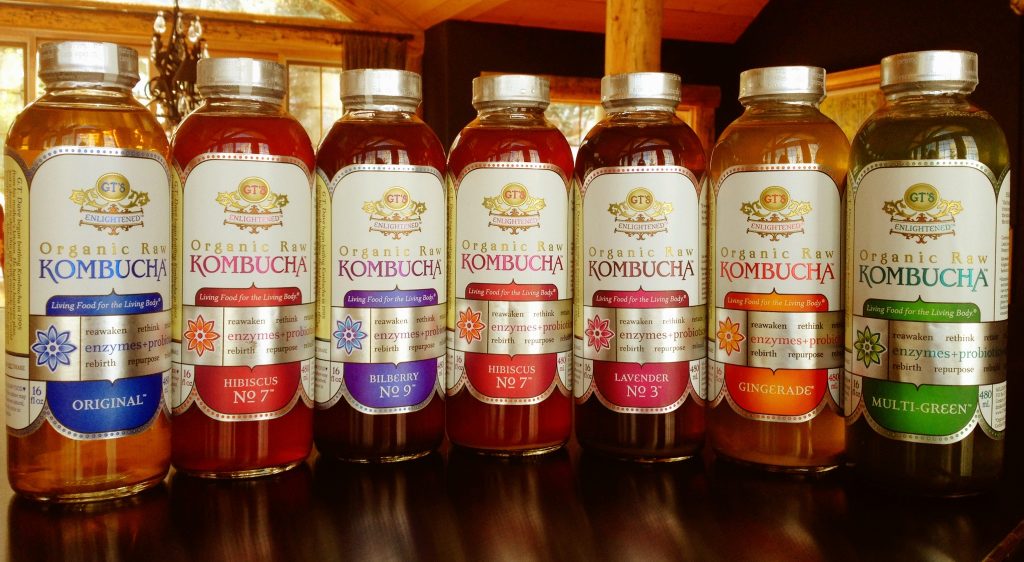
First, let’s talk about what probiotics are…
• Probiotics are live microorganisms that may be able to help prevent and treat some illnesses. Promoting a healthy digestive tract and a healthy immune system are their most widely studied benefits at this time. These are also commonly known as friendly, good, or healthy bacteria.
Gastroparesis is a condition that affects the gastrointestinal or GI tract, including the stomach. Although there have only been limited studies on the effect of probiotics with GP symptoms. One study, in particular, conducted in 2011, reported that probiotics may alleviate some of the uncomfortable side effects of gastroparesis, such as bloating.
In the first few months of my diagnosis, I studied everything about the disease as if I was a seasoned scientist. One of the main components of my new diet was probiotics. Even though there’ve been only a few studies, I know without a shadow of a doubt, that adding probiotics in any form controls many GP symptoms, ESPECIALLY BLOATING! If I go several days without intaking some form of probiotics I can noticeably tell the difference. The good thing is that one I do start taking them in again, it helps with the symptoms quickly. By quickly I mean later that day or in a matter of a few hours.
Foods & Drinks With Probiotics
• Yogurt
Probiotics are yogurt’s key ingredient. Not all yogurt sold in stores actually contain “live and active cultures,” as the bacteria in yogurt are known. The following list of companies and brands are currently approved for use of the National Yogurt Associate’s ‘Live & Active Cultures Seal’.
Activia, Border Light, Chobani, Colombo, Danimals, Dannon Greek, Desi Nat Dahi, Fiber One, Golden Spoon, Haagen-Dazs, La Yogurt, Moutain High Yogurt, Pathmark, Pinkberry, Ralphs, Scott Brothers Dairy, Shop Rite, Sweet Chills, Yofresca, and Brown Cow.
• Kefir
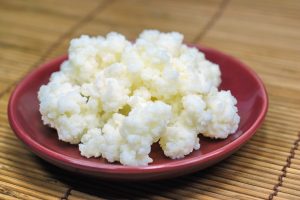
Is a milky beverage originating in Russia and Turkey, thought to be an even better source of probiotics than yogurt. Made by fermenting goat, cow, or sheep’s milk with kefir “grains”, this drink contains ten to twenty different types of bacteria.
• Kimchi
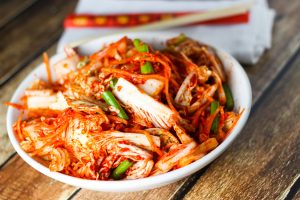
I LOVE KIMCHI! Is a spicy and sour, traditional Korean side dish made by fermenting cabbage, cucumber or radish. Kimchi is mostly pickled vegetables, so it’s a great low-calorie source of fiber. If you choose to make sandwiches, stir-fry or soup with Kimchi, be sure to add it last to avoid cooking off the good benefits.
• Sour Pickles
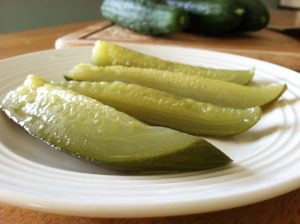
Salty pickle spears also deliver a punch of probiotics. Seek out varieties that are brined in water and sea salt, instead of vinegar. Vinegar brine won’t allow the beneficial bacteria to grow.
• Kombucha
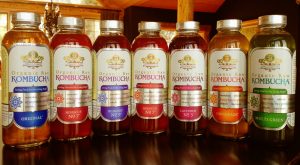
Pronounced cum-bu-cha, is a slightly sweet and fizzy liquid that results when the sweet black tea is fermented with a mushroom-like colony of bacteria called a “scoby”. Each bottle of Synergy Drink brand of fermented teas, pack one billion bacillus coagulans and one billion saccharmoyces boulardii, two types of organisms that are thought to help and prevent diarrhea. This product has been a staple of my diet. Even since my Botox injection, I still drink kombucha because it controls my bloating and overall makes me feel better. It’s one powerful product!
• Sauerkrat
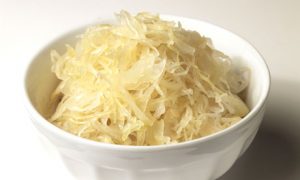
Made from fermented cabbage, not all store bought sauerkraut will have beneficial bacteria. One major note is to make sure the sauerkrat that you purchase is unpasteurized. Saurkrat that has been pasteurized, undergoes a process that destroys probiotics.
• Miso
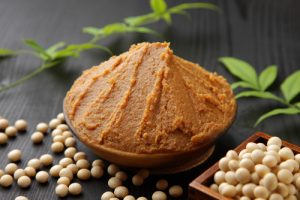
Miso is made from soybeans fermented with brown rice, which produces a miso paste, a very popular seasoning used in Aian cuisine. The fermentation process is what makes this condiment a source of lactobacillus acidophilus. A little goes a long way since it has a strong, salty flavor and lots of sodium.
• Tempeh
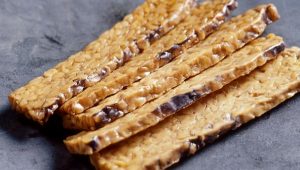
Another food formed from fermented soybeans, tempeh is a firm, white block that’s frequently used as a protein-packed meat substitute for vegans and vegetarians.
Not only will these powerful probiotics control GP symptoms, it will boost your immunity. If you haven’t added probiotics to your diet, the time is now!
If you have comments, questions or suggestions about probiotics or your experiences, let me know below!
gastroparesisdiet
Latest posts by gastroparesisdiet (see all)
- WHAT ARE PROBIOTICS? - December 17, 2017
- VLOG 12/15/17 – Reaction To Walks & Wearing Medicine - December 16, 2017
- VLOG 12/14/17 – I Escaped The 6th Floor - December 16, 2017




